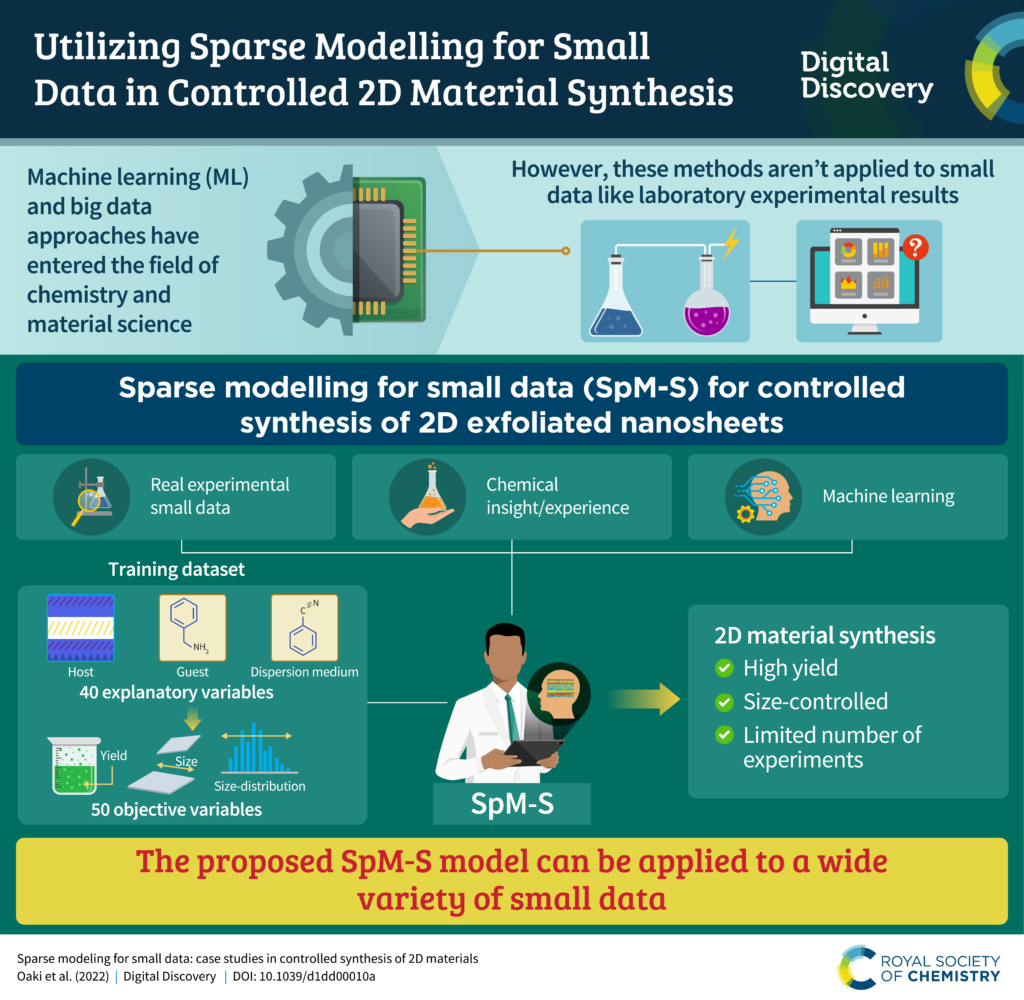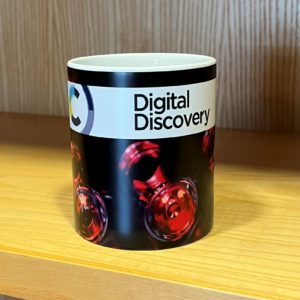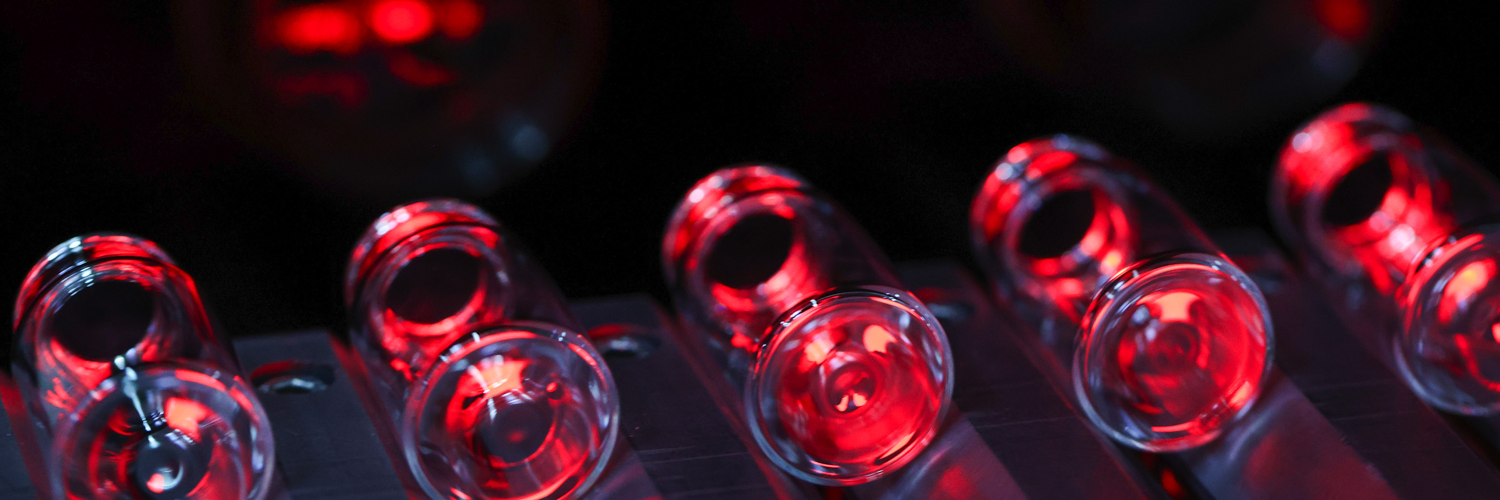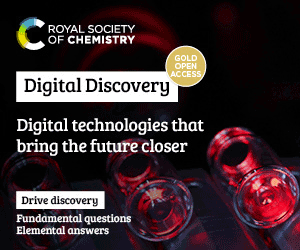
Find out more in the free-to-read open access article:
Sparse modeling for small data: case studies in controlled synthesis of 2D materials
Yuya Oaki et al., Digital Discovery, 2022, 1, 26–34. DOI:10.1039/D1DD00010A

Find out more in the free-to-read open access article:
Sparse modeling for small data: case studies in controlled synthesis of 2D materials
Yuya Oaki et al., Digital Discovery, 2022, 1, 26–34. DOI:10.1039/D1DD00010A
We’re excited to announce that Dr Matthew Addicoat of Nottingham Trent University has won the first exclusive Digital Discovery mug in our data reviewer prize draw!

Dr Addicoat has this to say about open data: “Data is important for so many reasons: For me the most obvious reasons are that sharing data allows faster progression by reuse of data and broadening collaboration. It also allows for errors to be found and fixed, which is increasingly important as science increasingly turns to data-driven.”
Thanks to Dr Addicoat and all our other data reviewers for their support! Find out more about becoming a data reviewer in our earlier blog post.

New data reviewers for Digital Discovery will be entered in a prize draw for an exclusive mug featuring the journal’s logo. The first two mugs have been won, and further applicants will automatically be included in the next draw!
Visit rsc.li/become-a-reviewer and follow the step-by-step instructions to sign up as reviewer.
Select Digital Discovery as the journal you would like to review for on the reviewer application form.
At the question:
Please let us know where you have found the reviewer application or recruitment information
Select “Other” and add:
Digital Discovery data reviewer
(If you are already a reviewer for the Royal Society of Chemistry, contact us and let us know you’d like to be highlighted as a data reviewer.)
Upon sending your submission, you will be entered into our next prize draw to win an exclusive Digital Discovery mug.
Digital Discovery data reviewers
The Royal Society of Chemistry believes that, where possible, all data associated with the research in a manuscript should be Findable, Accessible, Interoperable, and Reusable (FAIR), enabling other researchers to replicate and build on that research.
As such, Digital Discovery expect that authors submit both their code and data to community-recognized data repositories or a general repository if no community resource is available, and submit a Data Availability Statement upon their article submission. Referees have to be able to access code and data during the peer-review process, and public release should be coordinated with the publication of the manuscript.
During the peer review of Digital Discovery manuscripts, the Associate Editor solicits the expertise of at least two reviewers to assess the article and submit a report. A third data reviewer may also be consulted to assess and comment on the data provided. By becoming a data reviewer, you will be included in our data reviewer pool as a possible assessor of data and the submitted Data Availability Statements.
Find out more
Visit our Digital Discovery journal webpage
Learn about Digital Discovery’s data policies for submission
Find out more about being a reviewer for the Royal Society of Chemistry

Digital Discovery publishes top research at the intersection of chemistry, materials science and biotechnology. Blurring the barriers between computation and experimentation, we focus on the integration of digital and automation tools with science, putting data first to ensure reproducibility and faster progress.
This gold open access journal is now accepting submissions, and all article processing charges are currently waived.
Computational research and automation are key to accelerating all areas of science. If your work is driving digital transformation, in any area of chemistry or a related field, we want to hear from you.
“The future is what we want to capture in our journal. To all the peers and colleagues working in this space, this is going to be your home.”
Alán Aspuru-Guzik
University of Toronto, Canada
Best wishes
Royal Society of Chemistry


Digital Discovery is a gold open access journal that will chart the discovery of new chemicals, processes and biological systems through new tech development. The journal will complement the broad scope work published in PCCP (Physical Chemistry Chemical Physics).
Alán Aspuru-Guzik is the journal’s editor-in-chief:

To reach a future in which researchers make faster progress, knowledge is shared freely, and collaboration crosses boundaries, there must be more choice about where to publish open access.
Through consultation with active researchers in the community, the Royal Society of Chemistry is expanding our journal portfolio into rapidly growing areas to offer dedicated, open access homes for high quality, interdisciplinary research in these areas.
We hope you are as excited as we are about the launch of this new journal, and we invite you to sign up for the latest editorial board news, scope details and announcements, news and issue alerts.
With best wishes,
Royal Society of Chemistry